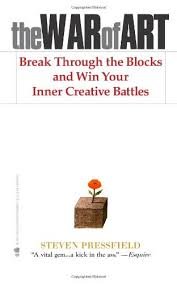People have often said to me, “I’ve always wanted to be a writer, but I’ve never tried because … [insert excuse.]”
If you’re one of those people, I totally understand where you’re coming from. 100%. For most of my life, I never thought it was possible for someone like me to write anything worth reading let alone be published until a hospital visit changed my mind. And now? I can tell you with complete certainty that yes, it is possible for you to be a writer because you have something no other person in the entire world has:
Your own unique voice.

I gotta warn you, though. This business is hard. Very hard. And it doesn’t matter if you have sold one, two, or even six books. It’s still hard and I’ve been through so many ups and downs that it’s amazing I’m not perpetually seasick. But to borrow from the amazing Tom Hanks in the movie, A League of Their Own:
“It’s supposed to be hard. If it wasn’t hard, everyone would do it. The hard is what makes it great.”
And the first time you hold an actual book with your name on it or when you receive a heartfelt message from a young fan who says your story changes their life? Wow. Every one of those hard moments will be worth it.
To help get you there, here’s some hints:
1. Read. Write. Learn. Repeat.
Seriously, I could end this list with just those four words. But to be a writer, you have to read. And read. And read. When you read a book, you subconsciously learn plotting, characterizations, how to hook a reader and keep them hooked to the very end.
It’s also important to write. And write. And write, even if for just a few minutes a day. Continual writing is like practicing and every artist—no matter how accomplished—needs to practice. Take a famous concert violinist. Despite their brilliance, do they ever get to a point where they can simply walk onto a stage, grab new sheet music they’ve never seen before and perform it flawlessly? No, they need to practice first. Same with a marathoner. Just because you cross the finish line in March doesn’t mean you can rest for three months with no running and think you can do the same in June. You need to practice. And learn. The moment you stop learning because you think you know it all is the moment you hit your high water mark, never growing, never getting better, never excelling.
Read. Write. Learn. Repeat.
2. Always, always, always put craft before publication.
So many times, writers—both new ones and seasoned pros—get so boggled down in their pursuit of publication that they forget to concentrate on what’s most important: Improving their craft and writing, writing, writing, because a beautifully written, amazing book will sell. Always.
3. Join a Writers Association
SCBWI is an amazing organization to join if your focus is in children’s literature. For other genres, there are many other organizations and writing communities such as The Maryland Writers Association. The dues you pay are well worth it! Once you register, visit your regional chapter’s website and join any listservs, email groups, or subscribe to their blog so you’ll be notified of any regional events or activities. And if you live in Maryland, Delaware, or West Virginia, then be sure to subscribe to As The Eraser Burns, where I’m a co-blogger!
4. Go to conferences…
… as often as possible. There’s something so wonderful about being in a room full of like-minded people who are fighting the same battles as you! And always pay extra for a critique and get your submission in EARLY to better your chances of being reviewed by an editor or agent. Where else will you get the chance to have actual face-to-face time with an editor or agent? Well worth the money.
For more hints about critiques and conferences, here’s a workshop I posted on As The Eraser Burns:
Workshop #1: Opening Lines
Workshop #2: Amazing Manuscript First Pages
Workshop #3: Formatting
Workshop #4: Surviving Your First Critique
Workshop #5: Perfecting Your Book Pitch
4. Join a critique group.
I love your momma. Your daddy is wonderful and your spouse/partner is fantastic, but unless they are writers or are in the publishing business, don’t show them your rough drafts because there’s a good chance they might over-coddle you with stuff like, “Oh, honey, this is sweet! You’re so cute.” Or they’ll accidentally crush your spirit by saying, “Um, I didn’t get this,” because they don’t understand that rough drafts are, indeed, supposed to be … well, rough! It’s best to join a critique group and have your manuscripts read by people who understand the concept of editing.
I should, however, confess that my mother is the only person who reads my rough drafts, but she’s not your typical “oh, that’s so cute,” mom. No, she’s brutal!
6. Be your own advocate.
Look, not to sound harsh or anything, but nobody is going to have more of a vested interest in your career than you will–not your agent, not your editor and certainly not your publisher. They’re in the business of selling great books, not nurturing careers or holding hands, and if you can’t deliver a great book, then there’s other debut authors who will. So always protect yourself by working hard and being your own advocate!
7. Don’t compare your writing journey with others.
Okay, I feel like a hypocrite with this one, because I’m constantly comparing my career with other writers, especially ones who had debut books come out the same year as mine. And after Beauty Shop for Rent was released, it was tough hearing about them selling another book … and another … and yet another, whereas I was struggling in a horrible second-book slump until Just Flirt sold.
But seriously. When it comes to writing, there are no finish lines. It’s a journey–a crazy, hard journey that might drive you insane but will fulfill you in ways you’ve never expected. And every one of us is on our own path that is completely different from each other, so it’s not fair to doubt yourself when you see writers taking steps before you do, such as signing with an agent or selling a book. Why? Because next year, you might be taking the same step. You might even be taking three steps! And although there are many elements in this business that is out of your control, there is something you can control: Your work habits, which brings me to:
8. Constantly evaluate your work habits.
At least once a month, take a hard look at yourself and ask questions like:
Am I dedicating enough hours to writing or is procrastination and my to-do list taking over?
Am I spending more time on social media than on my manuscript?
Have I been reading enough?
Have I been taking the time to hone my skills, and improve my craft?
What are other writers doing to improve their career?
And most importantly, what can I do to improve mine?
By doing these constant evaluations, you will keep your goals and work habits in check and on the right path toward publication.
Feel as though you need more of a mental tune-up? Here’s some wonderful books that have helped me:
Maximum Achievement: Strategies and Skills That Will Unlock Your Hidden Powers to Succeed, by Brian Tracy.
Goals!: How to Get Everything You Want — Faster Than You Ever Thought Possible, by Brian Tracy.
Awaken The Giant Within, by Anthony Robbins.
9. Learn from the pros.
There’s a TON of fabulous books, websites, and even YouTube videos out there that can greatly help you improve your writing! Some of my favorites are:
On the web:
The Creative Penn, so much info!
Cynthia Leitich Smith’s website that has an AMAZING wealth of information. (Love her.)
Goins, Writer, Jeff Goins
The Plot Whisperer, Martha Alderson, who has a fantastic 27-step tutorial on YouTube!
The Purple Crayon. Fabulous, fabulous, fabulous.
The Snowflake Method, by Randy Ingermanson, a wonderful plotting technique!
Terrible Minds, Chuck Wendig
Writer Unboxed, awesome for both beginners and pros.
Writing for Kids (while raising them,) Tara Lazar





For more great suggestions, check out my Ten Terrific Books for Writers posts!
10. And finally, never, NEVER quit.
If you do, there will be an empty hole in your heart that will never go away. I mean, so what if you’ve been writing picture books for years and have over 100 rejections? You know what? 101 could be your lucky number. Or maybe you’re not having success with picture books because you’re actually a natural young adult writer, but you’ve been resisting writing a novel because it’s too intimidating. Yeah. Been there, done that, and it wasn’t until I embraced my voice–with all it’s quirks–that I wrote a story worth selling.
And let’s say you’ve been working on a manuscript for two years but it just isn’t working. (Again. Been there, done that.) Rather than spinning wheels for another two years, step back and ask yourself: Is this story strong enough for today’s market? If your honest answer is no, then shelf it. Yes, I know. It’s hard admitting defeat, especially after investing so much time. But to continue with a story you know is going nowhere will only keep you from writing one that will.
Best of luck with your writing . . . and your journey!
Cross posted on As The Eraser Burns.





